|
I tell this story often enough, but the truth should be revealed: I joined choir to meet girls. I mean, I also hated whatever book we were reading in Mini Course, but I knew that the ratio of gals to guys would certainly be working in my favor, and let’s face it, Middle School was a tough place. Tacie Heavner, saw raw talent in me, and threw me into “The Washingtonians” - a middle school show choir that (in many ways) functioned as an advanced ensemble. I don’t remember the context, but one day, I remember her saying “Mr. Thompson will not deal with this at all,” regarding a disciplinary matter in the context of a rehearsal. Enter: the mythical figure of “T!”
Becoming a member of Sentinel Sounds became my primary focus. I started finding my voice and realizing that I had an aptitude for vocal music. I don’t remember the circumstances, but when I got to Fort Hill in the fall of 1999, T brought me into Sentinel Sounds as a Freshmen. For context: this was, the arts equivalent of being on the Varsity Football Team. I was thrust into a world where the expectations were high, and I was blissfully ignorant enough to just come along for the ride. One of my fondest memories of my Freshmen year in Sentinel Sounds was a rehearsal where we were singing Bruckner’s Locus Iste – I sang the low F in the last few bars, (which apparently had been lacking because of range issues in the bass section), and the room lit up. All of those upper classmen were looking at me, and T had this smile on his face that I’ll never forget. Show choir was undoubtedly the focus, but he also taught us ensemble skills, and gave us elements of the choral canon that were important to our development as an ensemble. Speaking of show choir, the refrain of “we’re working second shift,” or “you need tap shoes” became familiar in our homeroom ranks. We did get down time, but we were always preparing for some competition or showcase in both Show Choir AND Concert Choir. T taught us that we were privileged; that we had a gift, and that he had a vision for those gifts. Little did we know the extra work was teaching us all lessons that maybe we didn’t understand right away - I was just trying to get my algebra done. Because the Sentinel Sounds had their own rehearsal period, we staged a production of Godspell my freshmen year. The run of the entire show was almost derailed because of a traumatic and unfortunate incident that engulfed Bob’s whole family. We had a substitute the next day, but he came in and talked to us that afternoon, and the show went on. It was, and is still, one of the most emotionally charged and deeply moving performances I have ever been a part of. Everyone in Sentinel Sounds had to try out for Maryland All State Chorus, and in the months leading up to the audition we would spend rehearsal time singing through excerpts, and drilling sight reading exercises. Having been lucky enough to have been accepted into the mixed chorus in all 4 years of high school, provided me with a window outside of our local bubble. Upon arrival, I had to pass a part-check, which was daunting enough, but once we got into rehearsal, I realized that this was next-level. The musicianship was so high, and I got to encounter dynamic and well-known conductors in the choral realm including the famed Dr. Eph Ely and, of course, Dr. Paul Rardin, who was the reason I eventually attended Towson University to study music. Bob was the ensemble manager for the Senior Mixed Chorus and EVERYONE was afraid him. He did come across as stern and very direct – just as tight a ship as you would expect. Other students would say “He’s your teacher? WOW – what’s that like?” I knew who Bob was and I could honestly say to them “It’s great!” To see him sharing the stage with these other great conductors and to be in charge of the logistics of this large of an endeavor was inspiring, and just another facet of Bob as role model for what I’d eventually become. I was also blessed to be cast in several leading roles at Fort Hill, including Joseph in Joseph and the Amazing Techincolor Dreamcoat and Captain Von Trapp in The Sound of Music. There were other instances where I got supporting roles, and in one such case, starting to get a bit “too big for my britches,” I started acting pretty short with him – I wanted to be the lead! He let this go and took my snarky comments and attitude in stride, but after a few days of this he pulled me out of the classroom and into the auditorium and let me have it! It was the reality check I needed to be told that not everything was about me, or in this case, for me, and that it’s often more important to be a part of the whole than the center of attention. He was so incredibly patient with my shitty attitude and saw when there was a teaching moment. He knew his students needed to be ready to deal with the short-comings and failures we’d encounter in life. T and I worked together on myriad productions at Cumberland Theater even before I graduated high school. It was quite a different dynamic and calling him ‘Bob’ took some getting used to. At first, we were on stage together. I remember very distinctly singing the letter quintet (Most Honorable Judge Turpin) in Sweeney Todd which was a really challenging sing – It was Staci, Emily Morozek (James), Josh Ruppenkamp, me, and Bob. Eventually, Bob transitioned to the role of Stage Manager after Harold left, and I was working on staff in the summers doing everything from Box Office to set construction. One of my main responsibilities was as lighting assistant to Joe, which meant after hang, design and tech rehearsals, I was in the booth running lights and sound for the shows. I spent many summer nights talking with Bob over the janky intercom phones we used, in between frantic passages of him calling multiple cues in a row. The most fun I had though was going down to Carmichael’s Pub after work (once I turned 21 – or at least close to 21) with Don, Gary, and Bob. If we flashed back to 2008, I could tell you exactly what each of us would order, to the letter, but we never had to order – they were already bringing the drinks over when walked in the door. After getting my bachelor’s degree in voice performance at Towson University, I decided I wanted to pursue conducting and went on to do a Master of Music in Choral Conducting at Temple University. Following a 4-year stint back in Cumberland after my MMus, working at Our Lady of the Mountains Parish and co-founding Mountainside Baroque, I went on to the University of Washington in Seattle to complete a Doctor of Musical Arts in Choral Conducting. It was in 2018 that I was in the sight-reading room at the Allegany County Choral Adjudications. I had adjudicated this festival before from the floor, but never sight-reading. Bob walks into the room with Concert Choir, and just as a I remember, the group was trained within an inch of their lives – they looked like a small army, except they were smiling. I say “hi” to Bob and he seems a little [uncharacteristically] nervous – I bet you would be, too, if your former student was adjudicating your choir. What I wanted to say to him in that moment, which I couldn’t at the time, was “relax! You made me – show me how it’s done one more time.” He, of course, did, and they absolutely nailed it. Bob Thompson made me. He was the first person I encountered in my young life that DEMANDED excellence, but it was never for him; it was always for you. He provided us opportunities and gave us a window to the world beyond Fort Hill, Allegany County, and even Maryland. When he raised his voice, there was always a lesson to be learned, and when we got that lesson, it was his delight to bask in our success. I look at the last 19 years of my life, having chosen a career path he introduced to me, and I can say with absolute certainty that I would not be who I am today without Bob Thompson. As I was out for a run on the morning Bob died, trying to sort through all of the emotions swirlingly around in my head, I kept coming back to that Kirby Shaw arrangement of “Hand in Hand” that he always used for a closer to various events. I was trying to remember the words to the bridge, completely oblivious to my surroundings, when I heard a car horn that startled me. “Dr. Mullaney!” – it was one of my own choir students. If that wasn’t Bob trying to comfort me… Rest easy, Bob, and thank you. You will be missed, but your legacy lives on in all of us.
7 Comments
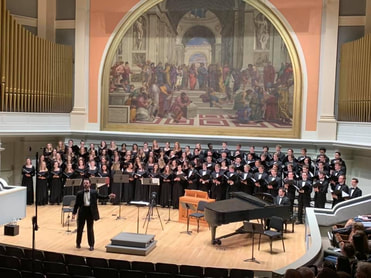 The University Singers Spring Concert "Journey of a Lifetime," performed on April 5, 2019 in Old Cabell Hall. The University Singers Spring Concert "Journey of a Lifetime," performed on April 5, 2019 in Old Cabell Hall. Recently, I re-discovered (while cleaning - because we all have plenty of time for that these days) a newsletter put out by the University Singers, the flagship choral ensemble at the University of Virginia. In it, was a short piece that I wrote reflecting on my short time leading the choirs there in Spring of 2019. Re-reading it and re-living the wonderful memories from that time is the stuff COVID-19 life is made of. It also made me realize that I hadn't yet taken time on here (as I did with my equally wonderful time at Whitworth), to reflect on those experiences. Below is the text that I wrote for that Newsletter. Also scroll down to the very bottom for a little video treat - a small taste of how thrilling a time it was to be at UVA! Meeting as friends, but parting as family. It’s truly hard to put words to my one, blissfully lucky term at UVA. Have you ever felt like you were part of something much bigger than you? From the institution, to the music department and of course the choirs, it felt like a community that shared a lofty vision for which to aspire on all fronts. With the University Singers coming off of their monumental run of Bernstein’s Mass last fall, and the prospect of having nearly one-hundred singers with nimble voices (something I’m not totally accustomed to) we set out to create a program filled with mini-masterworks like Brahms’ a cappella motet Schaffe in mir, Gott, Eric Whitacre’s athletic setting of the e.e. cummings poem “Little Man in a Hurry” (UVA was an original co-commissioner of this work) and Johann Pachelbel’s Nun danket, alle Gott, complete with a complement of period wind instruments. With some extra thought given to the smaller works on the concert, I came up with the theme “The Journey of a Lifetime,” a title that was more than a little apropos. For the class of 2019 it felt like something of a milestone, too; never in the history of University Singers “Exec” had there been a President and Ensemble Manager who switched roles for their 3rd and 4th years in the group, until Thomas Sumner and Katie Schneider. Granted, I have a limited scope, but it’s hard to picture the group without them. Other milestones this spring included a retirement celebration for Professor Emeritus Judith Shatin, for whom University Singers performed her own setting of Adonai R’oi on the weekend of her composer’s retrospective. Speaking of collaborating, I was also quite pleased to be able to include fellow UVA applied faculty members Adam Carter (violoncello), and Mike Rosensky (guitar) on the program as well. I would be remiss If I didn’t mention the stellar pianists who ably serve this program; Deke Polifka and Karen Dalton, I’m grateful both for your artistry, and camaraderie. There were many other highlights: There was basketball run to a national championship, and the UVA Chamber Singers doing a stellar job tackling a challenging program of all a cappella music (an effort that I am particularly proud of). Yet, I am perhaps most impressed with the tight-knit community that exists within the UVA Choral program. Michael’s vision extends far beyond his musicianship and scholarly intuition in his desire to foster a choral community at UVA that espouses devotion to art and service to others. I have yet to find a choral ensemble the size of University Singers that encompasses the values of family and artistry in equal measure. I often quipped during “Exec” meetings that I was just a visitor here, to which I was corrected “no you’re not, you’re family,” and wouldn’t you know it – it truly felt that way. My Jefferson cup sits on my desk at DeSales University where I am now an Assistant Professor of Fine Arts, along with a photo from our Winter 2019 retreat in Staunton. I treasure the memories of Spring 2019, and for every time I leave, I hope I return just as many times to [my now] dear old UVA. The University Singers help send off the UVA Men's Basketball team ahead of their appearance in the 2019 NCAA Men's Basketball Final Four. UVA went on to win the National Championship, defeating Texas Tech 85-77. Go Hoos! Like many of us in the field, my feelings have spanned the whole spectrum since “The Webinar” – the last time I’ll refer to it by name during this post. The discussion has become so polarizing in the choral and vocal worlds that I find myself both shocked and exhausted by the ripple effect it has created. There are two points of view: on one hand there are those who expound upon the dangers of community singing as laid out by scientists and doctors. On the other, there are those who vehemently reject it, or at least won’t accept it as the only way. I can understand both points of view, though the argument just feels toxic. My brain tells me it’s not safe to sing, my heart tells me I can’t live like this, and so far, leaders in our field have told me nothing...except to stick it out for (maybe) two years. I’ve become lost in it all; stuck in a middle that doesn’t exist. I wonder who else is stuck in the middle, not sure of the path ahead. It seems that a (no less) noble vocal lot go to our public forums day after day to be warriors for our art and debate the merits of their views, and the argument from either side; valid! We certainly can’t help how we feel, especially when we’re a feeling community to begin with. As long as the arguments are based in fact and aren’t unnecessarily alarmist, I welcome them. I’ve spent the better part of a week now trying to figure out why (ironically) I can’t find my voice in this debate. When the news came down about the relative dangers of in-person rehearsals, I felt overwhelmingly sad – the “rug had been pulled out from under us” all so quickly, and now we have another [insert any number you want] months of NO COMMUNAL SINGING?! Then after hashing it out with one of my most trusted confidants, I started to become confused, then frustrated, and then angry. There is no consensus among authorities on the matter, nor do they know how long it will last. Equally reputable sources, day-after-day, will disagree on the exact same points. I begin to think that it seems irresponsible, then, for organizations with such a large soap box to not take better control of the narrative, and follow-up with immediate resources, best practices, and proposed solutions (surely there are none that adequately address the situation now, given the circumstances) that would provide literally any guidance. At least that would help comfort people, instead of letting this information simply “hang in the air.” Surely hindsight is 20/20. Then there are the micro-points that are raised: “I need this information for x and y, to give me cover from z;” “people are looking to me for decisions;” school administrators are asking for direction, and the more we propagate the worst case scenario, or worse yet, one side of the scenario, the more likely choral programs seem like they’re expendable. This is true enough in the age of STEM based education, and COVID-19 may just be more fuel on that fire. I’d argue that our art is more relevant than ever, but that’s the subject of a whole different post. Nonetheless, I’ve drifted squarely back into the center - literally 50-50. If that’s where we are, doesn’t caution dictate that we should take the safer route, when we simply don’t know? I feel truly ridiculous being afraid of this. It’s all inconclusive. It’s scary. I should be an advocate – people are both loudly and quietly being advocates. It’s my job to be an advocate, and DAMMIT, WHERE IS MY VOICE?!? I'm in the middle. It’s not my job to speak until I have something to say. I’ve found my voice, and I want to say that I care about YOU. I may know YOU, and I may not, but when I started considering the entire body of our community, that is when it made sense to be 50-50 – in the middle. I worry for YOU, whether it’s your health, your livelihood, your art, or your (actual) voice. I have no answers. I share your fears and frustrations. I worry about our art, our profession, and our community. I stay home for YOU; I sing for YOU; I fight for YOU; I long for YOU. I’m in the middle, I’m grateful, and I CARE ABOUT YOU. As we’re on the cusp of a new year, it’s not only a chance for us to “reset” but also to reflect on the past. To that end, I’ve been thinking a lot about my musical failures - not in the guise of dwelling on something negative, but rather as opportunities for professional and personal growth.
As an undergraduate during the 2005-2006 academic year, I saw a flier for paid singers at a prominent church in Washington, D.C. Living in Baltimore, and already having a weekend church position in the city, I could only sing there as a substitute and after auditioning, got on the list to be called for events that did not conflict with my existing church schedule. I worked hard, prepared my music, and most of all (knowing this building and music program) was thrilled to be singing with this group in this massive space. Now I’ve always been ambitious, but in this instance, I learned quickly that I may have “bit off more than I could chew.” One summer evening, I was called to sing as a member of a small vocal ensemble. It turned out I was the only one singing the bass part on several occasions, and I thought I was prepared for that experience. Yet when it came down to it, I couldn’t hold the part on my own which led to an uncomfortable situation and other shifting parts to help carry my part. It was an uncomfortable situation for all involved, I was incredibly embarrassed and down about it, and as one would probably expect, I was never hired back to sing at that church. Again, I THOUGHT I was prepared for the gig, but as it turns out maybe I just wasn’t ready. When I started my undergraduate program, It seemed like I either came to music late, or didn’t get the same instruction as everyone else. I watched my colleagues pass out of introductory theory and aural skills classes, and I wanted to keep up – I wanted to be at the top of my field, but I wasn’t ready. Maybe I wanted the church job in DC because it was a status symbol, or a rite of passage for me; I needed to prove to myself and to my classmates (they probably weren’t judging me, but I thought they were) that I was capable. That experience in DC led to a type of complex with my professional choral singing experiences after that. I thought that, no matter how much I prepared, I wasn’t ready. I made stupid mistakes, and although I got through, I needed a change. Even up until a few years ago, I was embarrassed to talk about that unfortunate event in DC. I realized that it was a long time ago, but as it was still eating at me, I started looking for something positive that I learned from going through that experience. Long story short (sort of), you can’t compare myself, my development, my station, or my career to others. Not only is it an unfair comparison, it’s selfish, and if we’re doing it right, we should be selfless with our music making; that point is for another post. This admission has also become empowering to share with others, and especially helpful in my teaching. I know this seems self-evident, but for those who are experiencing something similar to what I’ve described here, own your situation, and your station. Be reflective, but be grateful; the only experiences that got you to where you are today are the ones you’ve gone through – all of them. 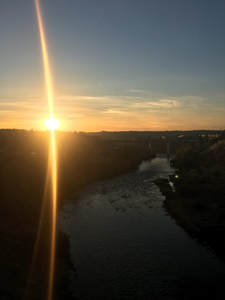 The view from the Monroe Street Bridge spanning the Spokane River on one of my evening walks up the South Hill. The view from the Monroe Street Bridge spanning the Spokane River on one of my evening walks up the South Hill. As you may know, I'm spending the fall term in Spokane, WA as a visiting lecturer in Choral Music at Whitworth University, and thought I'd take some time to reflect on my experiences in the Inland Northwest thus far. The city of Spokane itself is informally considered by its residents "a big small town," a description that I think suits it quite well. The downtown boasts a surprisingly large city scape from I-90, that probably seems even bigger than it is given that, however you slice it your passing a decent amount of wilderness on either end of your trip to get to Spokane. The Spokane river cuts the city in half, creating a centerpiece that frames in its center with a park and boasts multiple bridges, and a touristy hub complete with luxury shops, clothing retailers, restaurants, and an apple store. The population removed from these spots is pretty widely varied, and invokes the "small" part of the city's description. For someone that grew up in a fairly isolated (and now growing in its affluence) part of Maryland, I can relate to the hometown feel, and the pride the lifelong residents express for its resourceful and hardy citizens; the seasonal temperatures are more extreme than you'd think! One thing I can tell you with absolute certainty is that Whitworth University is a fantastic institution, from the President on down. For starters (and an aesthetic standpoint), the campus is a wonderful amalgamation of coniferous and deciduous trees with grass that is kept better than the fairways at Congressional Country Club. The students are conscientious, driven, and multi-facted beyond that which is typical of a liberal arts student, or even the typical music student. In men's chorus alone I have two freshmen who are in "Jazz I," the top big band at the school. As a musician and educator who espouses these ideals myself, I find it an invigorating atmosphere in which to work. It is also refreshing to have inspiring colleagues who are constantly challenging their students, their ensembles and themselves. Take for example, the composers represented in the Whitworth Wind Symphony's fall concert repertory: Hindemith, Ives, and a Bach transcription alongside challenging works by living composers John Mackey, Michael Daugherty, and Steven Bryant. Trust me, thats a FULL program. I, too, have posed several challenges to the Whitworth Choir, and also the combined choirs for this year's Whitworth Christmas Festival Concert which features all three choirs and orchestra. Among their music are sections of larger works by Felix Mendelssohn and Arthur Honegger. Needless to say, they are rising to the occasion, but thats for a whole other post. Perhaps I'll also update you on the race in the 5th congressional district between Lisa Brown and Cathy McMorris-Rogers then too, which has been, to say the least, an interesting slice of purple politics in America for which to be front and center. Spokane's arts scene isn't exactly comprehensive, but it is complete with offerings in just about every medium and genre. I had the good fortune of taking in a spirited production of the Marriage of Figaro by Inland Northwest Opera that was quite well attended - their first at the proscenium theater downtown for a number of years; it's good to know opera is still on the rise. My uber driver mentioned to me one day that he was headed to the comedy club after he was finished driving one night, and yes there are a number of wine tasting rooms around from the noted parts of SE Washington. I've also been singing with Kantorei and Festival Singers based at the Cathedral of St. John the Evangelist for their upcoming program "Come to the Woods: Northwest Beauty." I've met so many wonderful people through this process, which in many ways sums up the Spokane area very well: tight-knit. This particular group is makes up nearly the whole of the choral music community in Eastern Washington and Northwestern Idaho, a mix of music educators at all levels, students, and dedicated community members. I've also learned my best tips about things around town spending time at a local watering hole, and having heartfelt conversations with people about whatever matters to them. It seems like (in a nutshell) that this interesting cross-section of people who call this part of the country home love being eclectic but bound together in the best ways. How grateful I am to be a part of something like that, even for a short time. This past August before leaving for Washington State, I had the good fortune to spend a weekend with a former mentor and now colleague, Dr. Carl Schmidt, and his wife Betsey in their Baltimore home. Carl has always been a revered musicologist, and has published multiple volumes on both Francis Poulenc and Randall Thompson, including a thematic catalogue for each composers. He was also an esteemed professor of music (now emeritus) at Towson University just north of Baltimore, and helped outline the breadth and depth of inquiry that is required in sound music scholarship for so many that he taught. Not only that, but he placed a premium on what was required of a well written research paper or article, with a meticulous scrutiny on grammar and syntax, which would enhance and not undercut one's argument. I should also mention that I am the proud recipient of the MUSIC 302 Outstanding Term Paper Award in the Spring of 2005, as awarded by Carl for my paper "Bruckner's Sacred Music: The Reflection of a Man." It's still one of the best papers I've ever written, and these standards helped to fashion my recently completed dissertation. During my visit, Carl & Betsey regaled me with stories from their fascinating life including their time at Harvard, his time studying with Nadia Boulanger at Fontainebleau, and his meeting at Poulenc's house. They also shared with me a number of rare scores and manuscripts including those for Thompson's Glory to God in the Highest and A Feast of Praise. These were written for Carl's father Harold, a noted professor and choral conductor at Stanford University. I was pleasantly surprised to be gifted a large collection of Harold's personal choral octavos as well as his score of the Florentine Intermedii 1589, after mentioning this work specifically in one of our late night conversations. I'm very grateful to be carrying a small part of that legacy with me as I embark on my career as a musician and conductor.
We've all had those conversations that just flow freely from one thing to another, right? I feel like this every time I get to catch up with my friend Lydia, host of the podcast "RECORD. TALK. LISTEN." We recently recorded our conversation for posterity and for public consumption. This is the second time I've joined Lydia at the desk, with the first occasion being in 2015. You can listen to our conversation here or using the link below:
http://recordtalklisten.com/2018/08/19/ryan-mullaney-dma/ I may be older, but I certainly don't feel any wiser! I did, however, have a blast musing about music, the Pacific Northwest, Aretha Franklin, and the power of empathy. Please Enjoy. 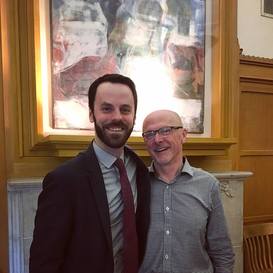 I'm proud to share that I have recently earned my Doctor of Musical Arts Degree in Conducting (concentration in Choral Conducting) from the University of Washington in Seattle. Granted it did take me a year longer than most, which I suppose happens when one keeps a wall-to-wall schedule during the academic year, but 22nd grade is enough for me! My dissertation, "Translating 'Transition': A Case Study on Performing Seventeenth Century German Church Music through a comparison of Three Settings of Christ lag in Todesbanden," features a newly prepared edition of a work by Sebastian Knüpfer which I hope to perform in the years ahead. I'm very grateful to have had many wonderful opportunities during my four years in Seattle, highlights of which include my associations with Queen City Musicians and Pacific Musicworks, and serving as Conductor of the Campus Philharmonia Orchestra and Associate Conductor of the Chamber Singers at UW. I am immensely proud to be associated with the University of Washington, an institution that has kindled within me a fierce dedication to not only my art, but to those who profess it along with me. In particular, I'm indebted to my mentor, Dr. Geoffrey Boers (seen with me above) for his musicianship, guidance, and vision over the last 4 years. In advance of our inaugural "Music in the Mountains" Summer Festival, Mountainside Baroque was featured in the May Issue of Early Music America's flagship publication "EMAg." The article highlights our organizations commitment to the budding arts scene in our area, providing world-class music to an underserved population. You can read article in its entirety here.
A little over a week ago, Mountainside Baroque kicked off its 6th season of presenting early music in both the Potomac Highlands and the Baltimore/Washington metro area. For those who aren't familiar, the organization was founded by myself and Dr. Lyle Nordstrom in 2010 as both an artistic outlet, and a service to the arts community in Western Maryland. We've had the good fortune to not only collaborate with world-class musicians on works like Vivaldi's Four Seasons, Telemann's Der Tod Jesu, Handel's Acis and Galatea, Purcell's Dido & Aeneas, and all 16 (well 15, really) of Heinrich Ignaz Franz von Biber's Rosary Sonatas, just to name a few. Since our humble beginnings, Mountainside Baroque has also taken on an extensive educational outreach campaign, highlighted by our annual Mountainside Baroque Academy for middle and high school age students, held each June in Cumberland, Maryland. It is our hope to continue this growth into the future and run our academy in tandem with an early music festival, held biennially and launching in 2018.
Our new season, Music of Princes and Pauper's Kicked off with an all Handel program featuring arias recalling the rival divas Faustina Bordoni and Francesca Cuzzoni, with the lovely Estelí Gomez and Fabiana Gonzalez in the title roles. The rest of the season features a staged production of John Gay's The Beggar's Opera, Music from Tudor England, and finally Bach's Brandenburg Concerto 4 and Coffee Cantata. If you haven't been to one of our performances, please consider joining us. more information is available at our website. If you please, it would be our delight. |
The Latest...What's new with Ryan? Find out here. Archives
July 2022
Categories |
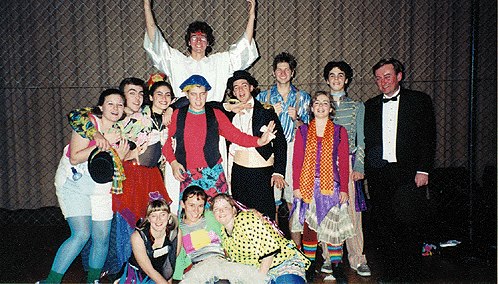
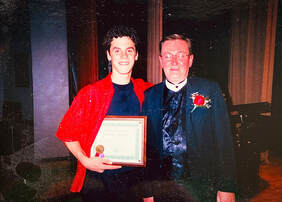
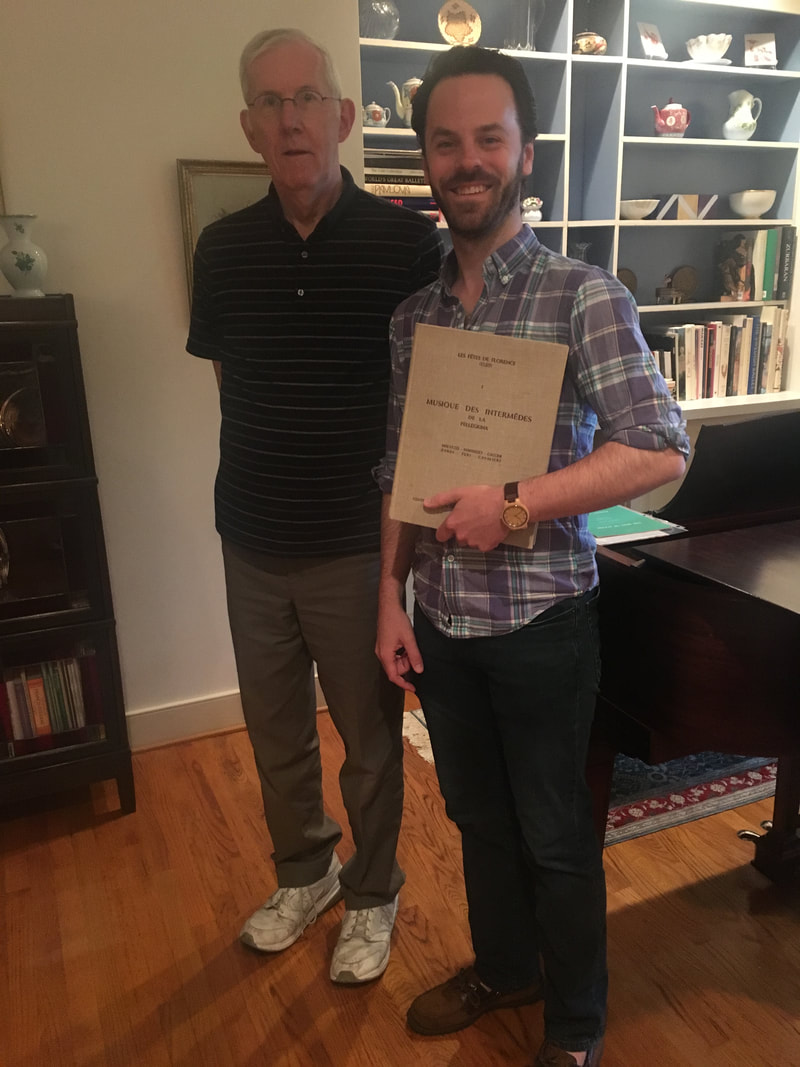
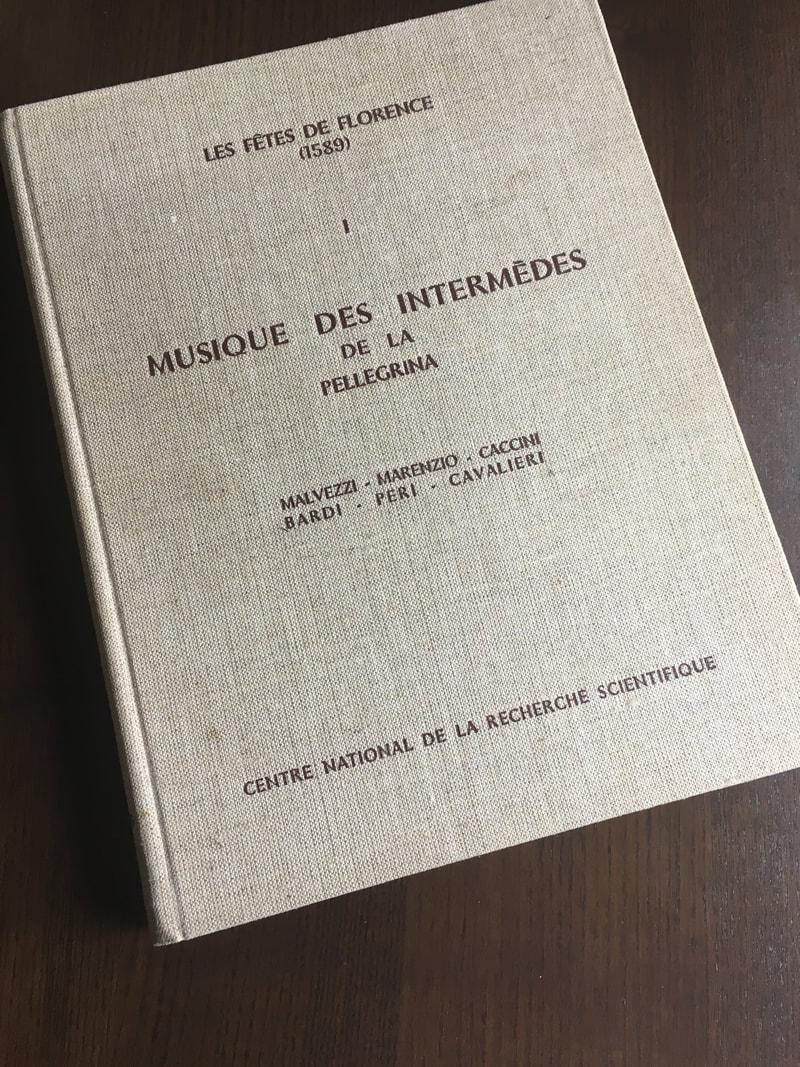
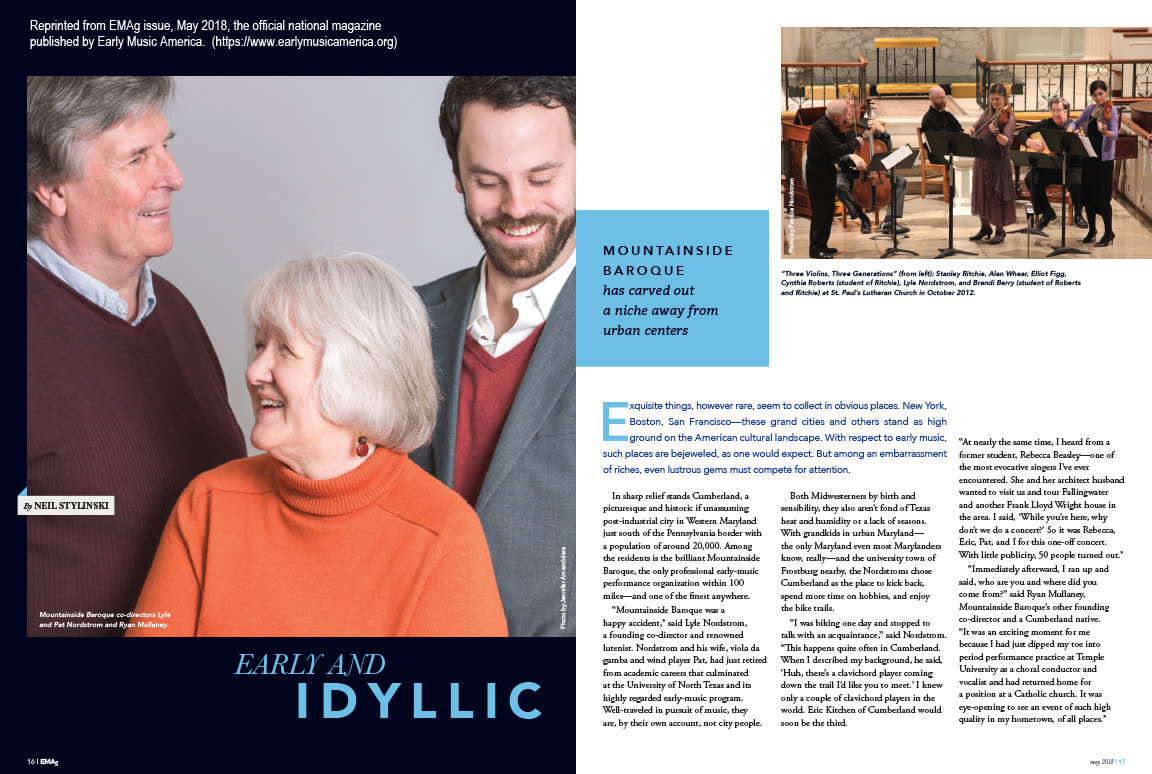
 RSS Feed
RSS Feed